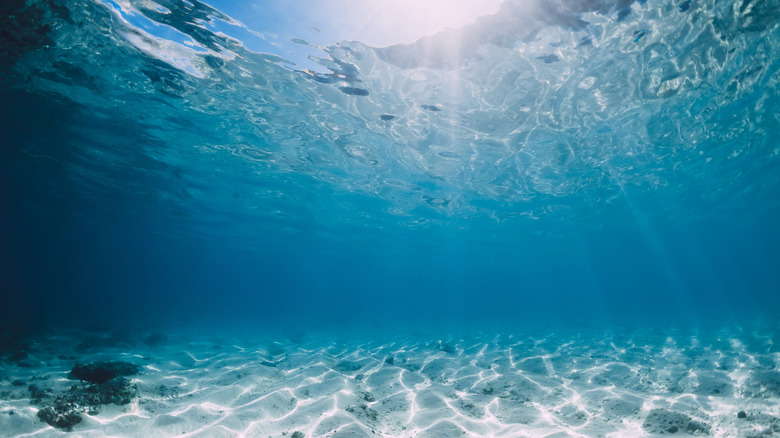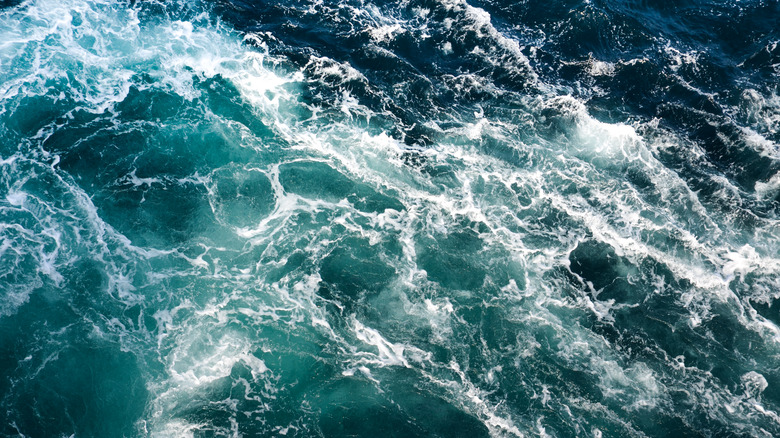This Is What Happens To Your Body If You Die Underwater
Forensics Digest explains that, here on land, the decomposition of a human body occurs in several stages. Bloating begins a few days after death as gases collect, decomposition around a week or two afterward, and the dry stage (in which the remains largely consist of just bone and other tough materials such as cartilage) is reached a few weeks to a month after the person's demise.
These changes, Forensic Digest goes on, are affected by various factors. A body of larger mass will decompose more slowly, and the surrounding environment has a huge impact too. In hotter weather, decomposition will be accelerated, and the same applies to bodies with injuries (which will cause everything from bacteria to hungry bugs and animals to contribute to the breaking down of the dead body). What effect, though, does being submerged in water have on this process?
Per Live Science, this isn't easy data to come by. In one experiment, Simon Fraser University forensic scientist Gail Anderson used pig carcasses (which are a similar size and have similar native bacteria to human bodies) and a high-tech underwater lab to monitor the effects of water on the bodies.
Water difference these factors make
The team discovered that shrimp, lobsters, and other hungry locals soon stripped the bodies to the bone, but the effectiveness of this varied depending on the environment. When oxygen levels were low, per Live Science, larger creatures like sharks stayed away, while smaller ones that could survive those conditions comfortably were often unable to penetrate the skin of the pigs.
Per Science Daily, Anderson has concluded that a pig's carcass of comparable size to a human's could remain intact in ocean water "for weeks or months, depending on oxygen levels, season, depth, and whether it remained in contact with the seabed." The scientist added that, at greater depths in more oxygen-rich conditions, "it can be expected that such a body would be skeletonized in less than four days."
When it comes to the decomposition process itself, forensic pathologist Dr. Dinesh Rao (via Forensic Pathology Online) reports that the putrefaction of a body is slower when submerged in water than in the open air. Cold saltwater slows the process still further, Rao writes, while warmer freshwater speeds it up. In water as on land, too, factors such as clothing can protect the body from the effects of decomposition for longer.

